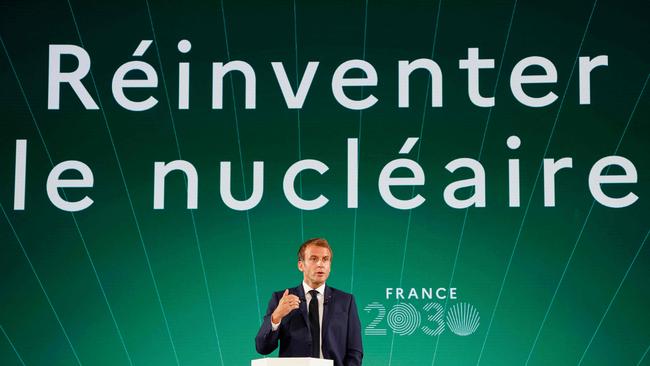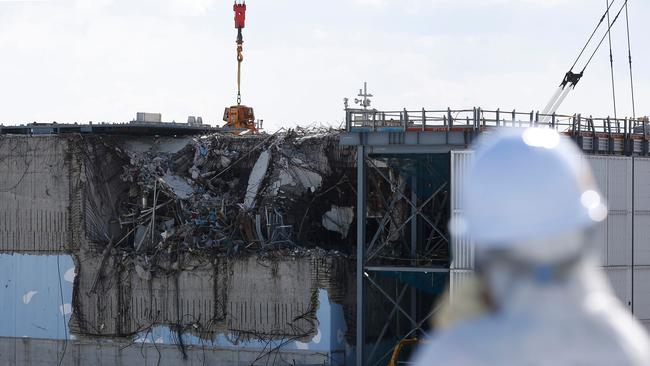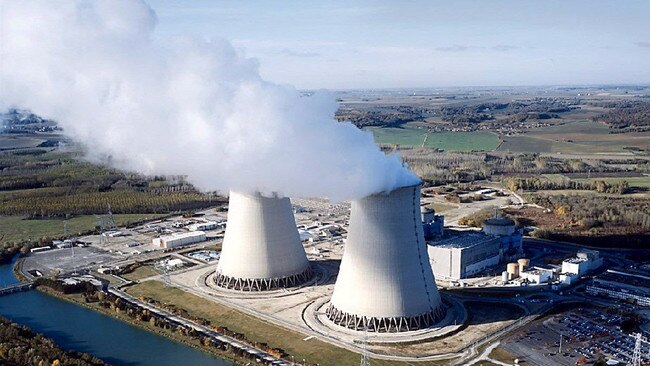France leads alliance fighting German hostility to nuclear energy
France is building a pro-nuclear European alliance to overcome German resistance to new rules that would open the way for more atomic power.

France is building a pro-nuclear European alliance to overcome German resistance to new rules that would open the way for more atomic power.
Nine other European countries have signed up to a nuclear power initiative at a time of spiralling energy prices, partly caused by EU climate change policies that increase the cost of electricity generation using fossil fuels.
The countries want nuclear power, which does not produce carbon emissions, to be classified as a green technology in EU industrial “taxonomy” ratings. This would allow private investment in atomic power to be linked to climate policy subsidies.
“Nuclear energy should be treated in the same way as all other sources of energy with low-carbon output,” said a statement signed by Bulgaria, Croatia, the Czech Republic, Finland, France, Hungary, Poland, Romania, Slovakia and Slovenia.

“There is no science-based evidence that nuclear power is less climate-friendly than any [low-carbon or renewable] energy sources. We need nuclear energy. This is for all of us a key and only means for a low-carbon future. Nuclear energy is a clean, secure, unrestricted and competitive low-carbon source of energy.”
Nuclear power accounts for about a quarter of the European Union’s electricity generation and, despite huge investments in wind power, represents almost half of low-carbon energy production across Europe.
Germany is firmly opposed to a new nuclear era and is committed to closing all of its atomic power plants by 2022, following the 2011 Fukushima crisis in Japan. No one was killed directly by the Fukushima meltdown, which had its origins in a catastrophic earthquake and tsunami.

Germany and other non-nuclear countries such as Austria, Ireland and Italy do not want an EU-rating that could lead to new investment in atomic reactors. However, the balance is swinging in favour of the French alliance because of the energy crisis. Prices have risen by at least 20 per cent as a result of the EU’s carbon pricing policies and Russian restrictions on gas supplies.
“It is absolutely essential that nuclear energy be included in the European taxonomy framework by 2021,” the group of ten countries said. “The growth of energy prices has also shown how important it is to be able to reduce our energy dependence on third countries.”
President Macron has reversed a decision to step back from nuclear power, made under pressure from Germany. Yesterday France announced “massive investments” in small modular reactors, or “mini” nuclear plants, that are seen as the future for the technology.
Nuclear energy costs for French national industries are much lower than those of Germany - euros 50 per megawatt hour in France compared with almost euros 60 for German factories.

Moreover, as winter approaches and energy demand grows, France has much lower carbon emissions than Germany, which has become more reliant on gas and coal as it phases out nuclear plants despite heavy investment in renewables.
Another factor has been a decline in the strength of the wind blowing across northern Europe. Wind speeds have fallen by as much 15 per cent on average in the past year, according to research by Vortex, a weather modelling consultancy.
The cause of the decline is not known but could be linked to long-term “global stilling” trends of decreased surface wind speed, perhaps caused by climate change. Less wind has a direct impact on the amount of electricity that can be generated by wind farms.



To join the conversation, please log in. Don't have an account? Register
Join the conversation, you are commenting as Logout